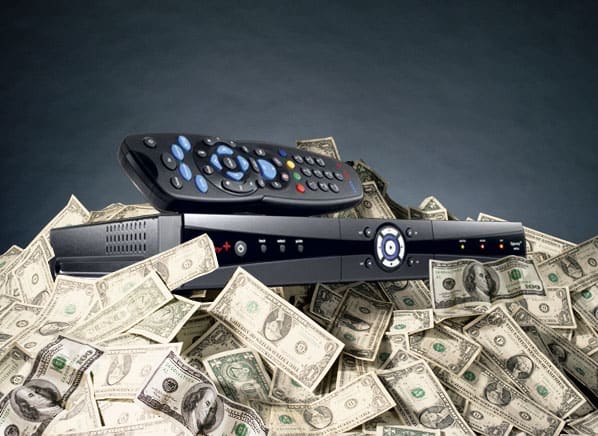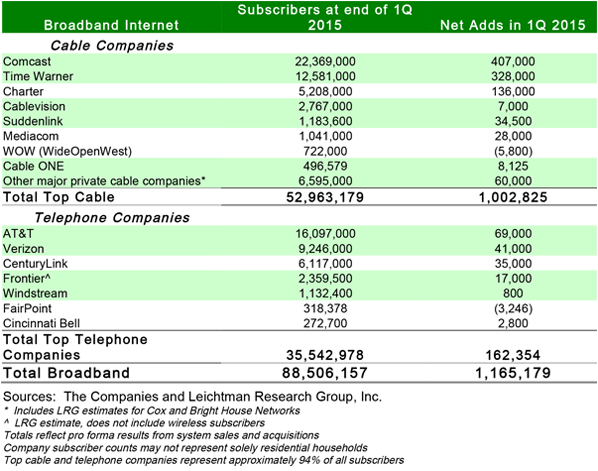With all the news about Charter Communications buying Time Warner Cable—as well as the smaller Bright House Networks—a lot of the focus has been on whether the acquisition makes business sense. But what we want to know is, Will the deal be good for consumers?
We'd like to think so, but there's not a lot of evidence to support the idea that bigger companies do better for their customers. In fact, the opposite is often true, with the biggest companies often notable for high prices, poor service, and disappointing customer satisfaction scores.
That's why Consumers Union, the policy and advocacy arm of Consumer Reports, is asking for regulatory scrutiny of the Charter bid for Time Watner Cable. "One of the biggest questions about Charter and Time Warner Cable is whether the deal is in the public interest," says Delara Derakhshani, policy counsel for Consumers Union. "Frankly, we're skeptical. When it comes to cable consolidation, history teaches us to be very concerned about the benefits for consumers. We're going to meet with federal regulators to make sure the consumer perspective is heard."
The new deal comes just a month after
Comcast dropped its own bid to acquire Time Warner Cable, after facing resistance from both the Justice Department and the Federal Communications Commission. Consumers Union and other public-interest groups
opposed the Comcast deal.
If approved, a combined Charter/Time Warner Cable/Bright House—with nearly 24 million customers in 41 states—would become the nation's second-largest cable operator, behind only Comcast, which has 27.2 million customers. Charter argues that the merger will enable it to more effectively compete with Comcast and also gain leverage in negotiating with content providers to get better rates for programming.
Whether the savings will be passed along to consumers is far from clear; the company will have a lot of debt to repay if this deal is approved. Charter also claims that having a larger national footprint would give it an incentive to invest in areas such as higher-speed broadband, expanded Wi-Fi networks, and new video services.
Charter does have some things to recommend it. The company offers relatively fast service, starting at 60Mbps, and unlike some other companies, it doesn't impose data caps on usage. And it's come out in support of the new net-neutrality rules, saying it will abide by those tenets regardless of the current legal and legislative challenges to the rules. But there's no guarantee that these policies will be continued, or applied in new markets.
The reality is that cable companies rarely compete in the same markets. In an op-ed piece for Time magazine last month, Senator Al Franken (D-Minn.) lamented that even with the Comcast-Time Warner Cable merger failing, there's too little competition in the cable and broadband markets. "As it stands now, 55 percent of U.S. households only have one choice for broadband Internet—and for a majority of those homes, it's Comcast. Not exactly an incentive for the company to provide first-class service, as many Comcast customers can attest."
His assessment is borne out by Consumer Reports' annual customer-satisfaction surveys, where larger cable companies typically take a beating when it comes to customer satisfaction. Of the 17 cable providers in this year's survey, Charter ranked 14th and Time Warner Cable was 16th. The only company to do worse than Time Warner Cable? You guessed it: Comcast.
While most reports have focused on what the deal could mean for TV service, the implications of such mergers are even more pronounced when it comes to Internet service. Many cable companies now have more broadband subscribers than TV customers. And there's often even less competition among broadband providers, especially where higher-speed Internet service is concerned.
That's something FCC Chairman Tom Wheeler addressed in a speech last September. "Unfortunately, the reality we face today is that as bandwidth increases, competitive choice decreases," he said. "At 25 Mbps, there is simply no competitive choice for most Americans. Stop and let that sink in . . . three-quarters of American homes have no competitive choice for the essential infrastructure for 21st-century economics and democracy. Included in that is almost 20 percent who have no service at all! Things only get worse as you move to 50 Mbps, where 82 percent of consumers lack a choice."
That's why public-interest groups and others are concerned about the rapidly changing, consolidating TV and broadband landscape. While Charter works on its Time Warner Cable deal, AT&T is trying to acquire satellite TV company DirecTV, the country's second largest pay-TV service, and last week a European telcom operator, Altice, bought a controlling interest in Suddenlink, a small U.S. cable operator. Cablevision is also seen as a possible takeover target, and it's expected that several other smaller cable companies will come into play.
—James K. Willcox























